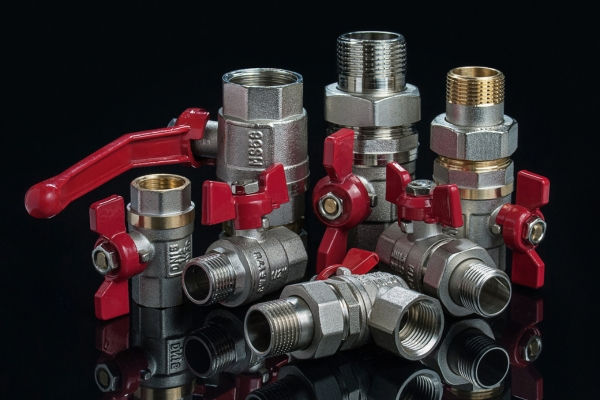Comprehensive Guide To Types Of Steel Nails
- xiongchengcemented
- Mar 24
- 4 min read

When it comes to construction, wood working, and DIY projects, nails are essential fasteners that hold everything together. Among various types, steel nails are the most broadly utilized due to their strength, durability, and versatility. Whether you're a contractor, carpenter, or hobbyist, understanding the different types of steel nails can help you choose the right one for your project. If you're looking for bulk supplies, a steel nails exporter can provide high-quality nails for various applications.
1. Common Nails
As the name suggests, common nails are the most frequently used nails in construction. They are made of mild steel, have a thick shank, and provide strong holding power. These nails are primarily used for framing, carpentry, and heavy-duty projects where maximum strength is needed. However, they are not ideal for delicate woodworking since they can split the wood.
Key Features:
Thick shank for strong holding power
Flat head for easy hammering
Best for framing and general construction
2. Box Nails
Box nails are similar to common nails but have a thinner shank, making them ideal for lighter wood projects. They are less likely to cause wood splitting and are perfect for assembling wooden boxes, crates, and light framing.
Key Features:
Thinner shank to reduce splitting
Used in woodworking and lighter construction
Less holding power than common nails
3. Finishing Nails
Finishing nails are designed for applications where appearance matters. They have a small head that can be easily concealed with wood filler, making them perfect for trim work, cabinetry, and molding. These nails provide a strong hold without being too visible.
Key Features:
Small head for a smooth, polished finish
Ideal for trim, molding, and cabinetry
Can be countersunk for a seamless look

4. Brad Nails
Brad nails are even thinner than finishing nails and are often used for delicate woodworking and detailed trim work. They prevent wood splitting and are commonly used with pneumatic nail guns.
Key Features:
Very thin shank for minimal damage
Perfect for small trims and moldings
Used with nail guns for precision
5. Duplex Nails
Duplex nails, also known as double-headed nails, are designed for temporary structures such as scaffolding and formwork. The second head allows for easy removal without damaging the material.
Key Features:
Two heads for easy removal
Used for temporary projects
Provides strong holding power
6. Roofing Nails
As the name suggests, roofing nails are specifically designed for securing roof shingles, tar paper, and insulation boards. They have a wide head and short shank, often coated with a corrosion-resistant material to withstand outdoor conditions.
Key Features:
Wide head for better grip
Short, strong shank
Corrosion-resistant coating for longevity
7. Masonry Nails
Masonry nails are made from hardened steel and are designed to be driven into brick, concrete, or stone. These nails have grooved shanks to improve grip and prevent slipping.
Key Features:
Made of hardened steel for strength
Grooved shank for better holding power
Used for connecting wood to concrete or masonry
8. Spiral and Ring Shank Nails
These nails have specially designed shanks to improve holding power and resistance to pulling out. Spiral nails twist into the wood like screws, while ring shank nails have ridges that grip the wood fibers.
Key Features:
Enhanced grip and holding power
Ideal for high-stress applications
Used in flooring, decking, and siding
Choosing the Right Steel Nail for Your Project
Selecting the right steel nail depends on factors such as:
Material type: Softer woods need thinner nails, while masonry requires hardened steel.
Project type: Temporary structures need duplex nails, while finishing work requires brads or finishing nails.
Environmental conditions: If nails will be exposed to moisture, opt for galvanized or stainless steel varieties.
Conclusion
Understanding the different types of steel nails helps in making informed decisions for various projects. Whether you need common nails for framing, finishing nails for trim work, or masonry nails for concrete, selecting the right type ensures durability and effectiveness. By choosing the appropriate steel nail, you can elevate the durability and resilience of your construction or woodworking projects.
FAQs
1. What is the strongest type of steel nail?
Masonry nails, made from hardened steel, are among the strongest as they can penetrate brick and concrete. For wood, ring shank nails provide excellent holding power.
2. Are galvanized steel nails better?
Yes, galvanized nails have a zinc coating that protects them from deterioration and tarnish, making them ideal for outdoor use.
3. Can steel nails be used in all types of wood?
Yes, but selecting the right type matters. Brad nails and finishing nails are best for softwood and delicate trims, while common nails work well for heavy-duty wood projects.
4. What type of steel nails are best for roofing?
Roofing nails with a wide head and corrosion-resistant coating are best for securing shingles and roofing materials.
5. Where can I buy high-quality steel nails?
You can find steel nails at local hardware stores, online marketplaces, or from a reliable exporter specializing in bulk supply.
By using the right steel nail for the job, you ensure strong and lasting results. Whether for construction, carpentry, or DIY, choosing the right type makes all the difference!







Comments